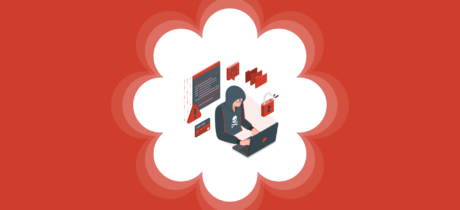
Why Speed is Crucial for Your WordPress Site
Table of Contents
Are you wondering why speed is crucial for your WordPress site? Well, let me tell you, it’s not just about convenience or user experience. A faster website actually has a direct impact on your search engine rankings, conversions, and revenue. That’s right, speed matters!
When your WordPress site loads quickly, search engines take notice and reward you with higher rankings. This means more visibility, more organic traffic, and ultimately more potential customers. But it doesn’t stop there. A speedy website also leads to increased conversions. Think about it – when a site loads slowly, visitors get frustrated and bounce off, resulting in lost opportunities. On the other hand, a fast site keeps users engaged, encourages them to explore more, and increases the likelihood of them taking action.
So, how can you optimize the speed of your WordPress site? That’s where professional WordPress speed optimization services come in. These experts not only diagnose your website’s performance issues but also provide you with the knowledge and tools to improve it. From choosing powerful hosting to optimizing images and using cache plugins, they know all the tricks of the trade to boost your site’s speed.
Don’t let a slow website hold you back. Invest in WordPress speed optimization services and watch your search engine rankings, conversions, and revenue soar.
Key Takeaways:
- A faster website improves search engine rankings, conversions, and revenue.
- Professional WordPress speed optimization services offer diagnostics, expert knowledge, and improved user experience.
- Basic speed optimization steps include powerful hosting, cache plugins, and image optimization.
- Best practices for speed improvement involve using a speed-optimized theme, avoiding sliders, and eliminating bloated plugins.
- Advanced strategies include deferring JavaScript/CSS, optimizing the database, and using the latest PHP version.
The Importance of Website Speed
In today’s digital age, website speed plays a crucial role in determining the success of a website. A faster website not only enhances the user experience but also has a significant impact on search engine rankings, conversions, and revenue. Whether you have a personal blog or an e-commerce site, optimizing your WordPress site for speed is essential to stay ahead of the competition.
Better Search Engine Rankings
Search engines like Google consider website speed as one of the factors when ranking websites. A faster site is easier for search engine bots to crawl and index, resulting in better visibility in search engine results pages (SERPs). When your site loads quickly, search engines can efficiently analyze and understand your content, which can lead to improved rankings.
Increased Conversions
The speed of your website directly affects user experience, and a slow-loading site can drive visitors away. Studies have shown that even a one-second delay in page load time can lead to a significant increase in bounce rates. On the other hand, a fast-loading site keeps visitors engaged, reduces bounce rates, and increases the likelihood of conversions. Whether your goal is to generate leads or sell products, a fast website can significantly impact your conversion rates.
Higher Revenue
The speed of your website is directly linked to your revenue. A slow-loading site can lead to frustrated visitors who are more likely to abandon their shopping carts or leave your site without completing a purchase. On the other hand, a fast website provides a seamless browsing experience, encourages visitors to stay longer, and increases the chances of them making a purchase. By optimizing your WordPress site for speed, you can improve your revenue potential and maximize your online success.
To optimize the speed of your WordPress site, you can take advantage of professional WordPress speed optimization services. These services offer website diagnostics, expert knowledge, and tailored solutions to enhance your site’s performance. They can help you identify and eliminate factors that may be slowing down your site, such as unoptimized images, too many plugins, outdated plugins, and inefficient code.
Basic speed optimization steps include choosing a powerful hosting provider, utilizing cache plugins to store static files, and optimizing images to reduce file size without compromising quality. Best practices for improving speed involve using a theme specifically optimized for speed, avoiding resource-intensive elements like sliders, and eliminating bloated plugins.
For advanced performance optimization, strategies such as deferring JavaScript and CSS, optimizing the WordPress database, and using the latest PHP version can further enhance the speed and efficiency of your WordPress site. Additionally, keeping your plugins, themes, and the WordPress database up to date is crucial for efficient site loading.
In conclusion, the speed of your WordPress site is a critical factor that can directly impact your search engine rankings, conversions, and revenue. By investing in WordPress speed optimization services and implementing best practices, you can ensure that your site loads quickly, providing an exceptional user experience and maximizing your online success.
Benefits of Professional WordPress Speed Optimization Services
In today’s digital age, speed is crucial for the success of any website. Slow-loading websites can be frustrating for users, leading to high bounce rates and lost conversions. That’s why it’s essential to invest in professional WordPress speed optimization services. These services offer a range of benefits that can significantly improve the performance of your WordPress site.
Website Diagnostics
One of the key advantages of professional WordPress speed optimization services is the comprehensive website diagnostics they provide. These diagnostics help identify the specific factors that are slowing down your website. From unoptimized images to inefficient code, the diagnostics will pinpoint the areas that require improvement. By addressing these issues, you can significantly enhance your site’s speed and overall performance.
Expert Knowledge
Professional WordPress speed optimization services are provided by experts in the field. These professionals have in-depth knowledge of the various factors that affect website speed and know the best practices to optimize your WordPress site. They stay updated with the latest trends and techniques, ensuring that your site is always at the forefront of speed optimization. With their expertise, you can trust that your website will be in capable hands.
Improved Conversion Rates
A faster website can lead to increased conversions and higher revenue. Research has shown that even a one-second delay in page load time can result in a significant drop in conversions. By optimizing your site’s speed, you can provide a seamless browsing experience for your visitors, reducing bounce rates and encouraging them to stay longer on your site. This improved user experience can translate into higher conversion rates and ultimately, more sales or leads for your business.
Better User Experience
Speed is not only important for conversions but also for providing a positive user experience. When users visit a website, they expect it to load quickly and smoothly. A slow-loading site can frustrate users and lead to a negative perception of your brand. On the other hand, a fast website creates a positive impression and makes users more likely to engage with your content. By investing in professional WordPress speed optimization services, you can ensure that your site delivers an excellent user experience, leaving a lasting positive impression on your visitors.
In conclusion, professional WordPress speed optimization services offer a range of benefits for your website. From website diagnostics to expert knowledge, improved conversion rates, and better user experience, these services can significantly enhance the performance of your WordPress site. By investing in speed optimization, you can stay ahead of the competition, improve your search engine rankings, and ultimately, achieve your business goals.
For more information on WordPress speed optimization, visit the WordPress.com support page.
Speed and its Impact on WordPress Site Health and Ranking
In today’s digital age, where users have become increasingly impatient, the speed of your website can make or break its success. A slow-loading website not only frustrates visitors but also negatively impacts your site’s health and ranking on search engines. So, why is speed crucial for your WordPress site? Let’s explore its impact on various aspects of your website’s performance.
Easier Crawling
Search engine bots are constantly crawling websites to index their content and determine their relevance to user queries. A faster website allows search engine bots to crawl more pages within a shorter period. This means that your website’s content can be indexed more efficiently, increasing its visibility on search engine results pages (SERPs). With improved visibility, your WordPress site has a better chance of attracting organic traffic and reaching a wider audience.
Lower Bounce Rates
When visitors land on a slow-loading website, they are more likely to leave before even exploring its content. This high bounce rate not only indicates a poor user experience but also sends negative signals to search engines. On the other hand, a fast-loading website keeps visitors engaged and encourages them to explore further. By reducing bounce rates, your WordPress site can improve its search engine ranking and attract more organic traffic.
Higher Conversions
Speed plays a crucial role in driving conversions on your WordPress site. Studies have shown that even a one-second delay in page load time can lead to a significant drop in conversion rates. On the other hand, a fast-loading website creates a seamless user experience, allowing visitors to navigate effortlessly and complete desired actions, such as making a purchase or submitting a form. By optimizing the speed of your WordPress site, you can increase the likelihood of conversions and ultimately drive higher revenue.
To ensure that your WordPress site performs at its best, it’s essential to invest in professional speed optimization services. These services offer website diagnostics, expert knowledge, and a range of techniques to improve your site’s speed, conversion rates, and user experience. By leveraging their expertise, you can optimize various aspects of your site, from choosing powerful hosting and using cache plugins to optimizing images and eliminating bloated plugins.
In addition to these basic speed optimization steps, there are best practices and advanced strategies that can further enhance the speed and performance of your WordPress site. Using a theme specifically optimized for speed, avoiding resource-heavy elements like sliders, and eliminating unnecessary plugins are some of the best practices you can implement. Advanced strategies, such as deferring JavaScript and CSS, optimizing the WordPress database, and using the latest PHP version, can take your site’s speed to the next level.
It’s important to note that certain factors can slow down your site, such as unoptimized images, too many plugins, outdated plugins, and inefficient code. By downsizing images and using as few plugins as possible, you can significantly improve the speed of your WordPress site. Additionally, streaming videos and widgets from external services can also affect loading times. Optimizing CSS loading and choosing an efficient theme further contribute to a faster website.
Regular maintenance is crucial for the efficient loading of your WordPress site. Keeping plugins, themes, and the WordPress database up to date ensures compatibility, security, and optimal performance. Neglecting these updates can lead to slower loading times and potential vulnerabilities.
In conclusion, speed plays a vital role in the health and ranking of your WordPress site. A fast-loading website not only improves search engine rankings but also reduces bounce rates and increases conversions. By investing in professional speed optimization services and implementing best practices, you can ensure that your WordPress site delivers an exceptional user experience, attracts organic traffic, and achieves its goals.
To learn more about the benefits of WordPress speed optimization services, you can refer to the Vocso blog post.
Basic Speed Optimization Steps for Your WordPress Site
As a WordPress site owner, you want your website to be fast and efficient. After all, speed plays a crucial role in improving search engine rankings, increasing conversions, and ultimately boosting your revenue. In this section, we will explore some basic speed optimization steps that you can implement on your WordPress site to enhance its performance and user experience.
Powerful Hosting
One of the first steps in optimizing your WordPress site’s speed is to choose a powerful hosting provider. A reliable hosting service ensures that your site has the necessary resources to handle incoming traffic and deliver content quickly. Look for hosting providers that offer solid-state drives (SSDs), as they provide faster data transfer speeds compared to traditional hard drives.
When selecting a hosting provider, keep in mind factors such as server location, uptime guarantee, and customer support. A server located closer to your target audience can significantly reduce the time it takes for your site’s data to travel and load on their devices, resulting in faster page load times.
Cache Plugins
Cache plugins are essential tools for speeding up your WordPress site. These plugins generate static HTML versions of your web pages and serve them to visitors, reducing the need for dynamic page generation with each request. By caching your site’s content, you can significantly improve its loading speed.
There are several cache plugins available for WordPress, such as W3 Total Cache and WP Super Cache. These plugins offer various optimization features, including browser caching, minification of CSS and JavaScript files, and content delivery network (CDN) integration. By leveraging cache plugins effectively, you can deliver a faster and more responsive user experience.
Image Optimization
Optimizing images is another critical step in improving your WordPress site’s speed. Unoptimized images can significantly slow down your site’s loading time, especially on mobile devices with limited bandwidth. By reducing image file sizes without compromising quality, you can significantly enhance your site’s performance.
There are several techniques you can use to optimize images on your WordPress site. Firstly, you can resize images to the appropriate dimensions before uploading them. Secondly, you can compress images using tools like Kraken.io or Smush, which remove unnecessary metadata and reduce file sizes. Lastly, consider lazy loading images, which means loading images only when they appear in the user’s viewport, rather than all at once.
Conclusion
In this section, we discussed some basic speed optimization steps for your WordPress site. Choosing a powerful hosting provider, utilizing cache plugins, and optimizing images are essential strategies to enhance your site’s performance. By implementing these steps, you can provide a faster and more enjoyable user experience, improve search engine rankings, and ultimately increase conversions and revenue.
For more advanced performance optimization strategies and best practices, continue reading the next sections of this article.
Citation: WordPress.com Support – Site Speed
Best Practices for Improving WordPress Site Speed
When it comes to running a successful WordPress site, speed is a crucial factor that should not be overlooked. A faster website not only enhances the user experience but also has a significant impact on search engine rankings, conversions, and revenue. In fact, studies have shown that a one-second delay in page load time can lead to a 7% reduction in conversions (source). To ensure your WordPress site performs at its best, here are some best practices for improving its speed.
Optimized Speed Theme
Choosing a theme that is optimized for speed is a great starting point for improving your WordPress site’s performance. A speed-optimized theme is designed to have efficient code, minimal CSS and JavaScript files, and streamlined features. These themes prioritize loading speed without sacrificing functionality or design. By using a speed-optimized theme, you can significantly reduce the loading time of your site and provide a better user experience.
Avoiding Sliders
While sliders may seem like an attractive way to showcase multiple images or messages on your website, they can actually negatively impact your site’s speed. Sliders often require additional scripts and resources to function properly, which can slow down the loading time of your pages. Additionally, sliders can distract users and increase bounce rates, leading to lower conversions. Instead of using sliders, consider using static images or other alternatives that don’t compromise your site’s speed.
Eliminating Bloated Plugins
Plugins are a fantastic way to extend the functionality of your WordPress site, but using too many or poorly optimized plugins can have a detrimental effect on its speed. Each plugin you install adds additional code and potentially increases the number of HTTP requests, which can slow down your site. It’s essential to carefully choose and regularly audit the plugins you use, ensuring they are lightweight, well-maintained, and necessary for your site’s functionality. By eliminating bloated plugins, you can significantly improve your WordPress site’s speed.
By implementing these best practices, you can make significant strides in improving the speed of your WordPress site. However, it’s important to note that speed optimization is an ongoing process. Regularly monitoring your site’s performance, keeping your plugins and themes up to date, optimizing your database, and following advanced performance optimization strategies can further enhance your site’s speed and overall user experience. Remember, a fast-loading website not only benefits your visitors but also positively impacts your search engine rankings, conversions, and revenue. So, take the time to prioritize speed optimization and watch your WordPress site thrive.
Advanced Performance Optimization Strategies for WordPress Site Speed
In today’s digital age, speed is everything. Whether it’s waiting for a webpage to load or a video to buffer, we’ve all experienced the frustration of a slow website. As a website owner, you can’t afford to overlook the importance of speed. A faster website not only leads to better search engine rankings but also increased conversions and higher revenue. In fact, studies have shown that even a one-second delay in page load time can result in a 7% reduction in conversions.
Deferred JavaScript and CSS
One of the most effective ways to optimize the speed of your WordPress site is by deferring JavaScript and CSS. By deferring these resources, you allow the browser to load other critical elements of your webpage first, improving the overall load time. This technique is especially useful for larger websites with complex themes and multiple plugins.
To defer JavaScript and CSS, you can use plugins like Autoptimize or WP Rocket. These plugins automatically combine and minify your JavaScript and CSS files, reducing the number of HTTP requests and improving load times. Additionally, they provide options to defer the loading of these resources, ensuring that they are only loaded when necessary.
Database Optimization
Another area where you can significantly improve the speed of your WordPress site is by optimizing your database. Over time, your database can become cluttered with unnecessary data, such as revisions, spam comments, and expired transients. This can slow down your site and increase the load time.
To optimize your database, you can use plugins like WP-Optimize or WP Rocket. These plugins allow you to clean up your database by removing unnecessary data, optimizing database tables, and scheduling regular cleanups. By keeping your database lean and optimized, you can improve the performance of your site and reduce load times.
Latest PHP Version
Keeping your WordPress site up to date is not only crucial for security but also for performance. One of the best ways to ensure optimal performance is by using the latest PHP version. PHP is the programming language that powers WordPress, and each new version brings performance improvements and optimizations.
By upgrading to the latest PHP version, you can take advantage of these performance enhancements and improve the speed of your site. However, before upgrading, it’s essential to ensure that your theme and plugins are compatible with the new PHP version. You can use plugins like PHP Compatibility Checker to identify any potential compatibility issues and make the necessary updates.
In conclusion, advanced performance optimization strategies are necessary to achieve optimal speed for your WordPress site. By deferring JavaScript and CSS, optimizing your database, and using the latest PHP version, you can significantly improve the load times and overall performance of your site. Remember, speed is crucial for the health and ranking of your WordPress site on search engines, as well as for providing a better user experience. Don’t overlook the importance of site speed and consider utilizing professional WordPress speed optimization services to ensure your site is performing at its best.
Reference: Benefits of WordPress Speed Optimization Services
Factors That Can Slow Down Your WordPress Site
When it comes to running a WordPress site, speed is crucial. A slow-loading website can be frustrating for visitors and can have a negative impact on your search engine rankings, conversions, and revenue. In fact, studies have shown that a one-second delay in page load time can result in a 7% reduction in conversions.
There are several factors that can contribute to a slow WordPress site. In this section, we will explore some of the common culprits and how they can be addressed.
Unoptimized Images
One factor that can significantly slow down your WordPress site is unoptimized images. Large image files can take longer to load, causing delays in the overall page load time. To optimize your images, you can resize them to the appropriate dimensions and compress them without sacrificing quality. There are also plugins available that can automate this process for you.
Too Many Plugins
While plugins can add functionality to your WordPress site, having too many of them can have a detrimental effect on performance. Each plugin requires additional resources to run, which can slow down your site. It’s important to regularly review and remove any unnecessary plugins. By keeping only the essential ones, you can reduce the strain on your server and improve your site’s speed.
Outdated Plugins
Using outdated plugins can also contribute to a slow WordPress site. Developers regularly release updates to address security vulnerabilities and improve performance. By not updating your plugins, you may be missing out on these enhancements. It’s important to regularly check for updates and ensure that all your plugins are up to date. This will not only improve the speed of your site but also keep it secure.
Inefficient Code
Inefficient code can be a major factor in slowing down your WordPress site. Poorly optimized themes or custom code can result in slower load times. It’s important to choose a theme that is optimized for speed and to avoid using themes with excessive features or bloated code. Additionally, optimizing your code by minifying CSS and JavaScript files can help improve your site’s performance.
To ensure that your WordPress site is running at its optimum speed, it’s important to address these factors that can slow it down. By optimizing your images, minimizing the number of plugins, keeping them up to date, and using efficient code, you can provide a faster and smoother experience for your visitors.
Guide to Page Speed Optimization for WordPress
Frequently Asked Questions
What are the benefits of having a faster website?
A faster website leads to better search engine rankings, increased conversions, and higher revenue.
What advantages do professional WordPress speed optimization services offer?
Professional WordPress speed optimization services offer website diagnostics, expert knowledge, improved conversion rates, and better user experience.
Why is speed important for a WordPress site?
Speed is important for the health and ranking of a WordPress site on search engines. Fast sites are easier to crawl and have lower bounce rates, resulting in higher conversions.
What are some basic speed optimization steps for a WordPress site?
Basic speed optimization steps include choosing powerful hosting, using cache plugins, and optimizing images.
What are the best practices for improving speed on a WordPress site?
Best practices for improving speed include using a theme optimized for speed, avoiding sliders, and eliminating bloated plugins.
Are there any advanced performance optimization strategies for a WordPress site?
Yes, advanced performance optimization strategies include deferring JavaScript and CSS, optimizing the WordPress database, and using the latest PHP version.
What factors can slow down a WordPress site?
Factors that can slow down a site include unoptimized images, too many plugins, outdated plugins, and inefficient code.
How can I improve site speed?
You can improve site speed by downsizing images, using as few plugins as possible, and avoiding streaming videos and widgets from external services. Optimizing CSS loading and choosing an efficient theme can also help improve site speed.
Why is it important to keep plugins, themes, and the WordPress database up to date?
Keeping plugins, themes, and the WordPress database up to date is important for efficient site loading.
Do site speed measuring tools consider specific software platforms like WordPress.com?
No, site speed measuring tools may not consider specific software platforms like WordPress.com.







